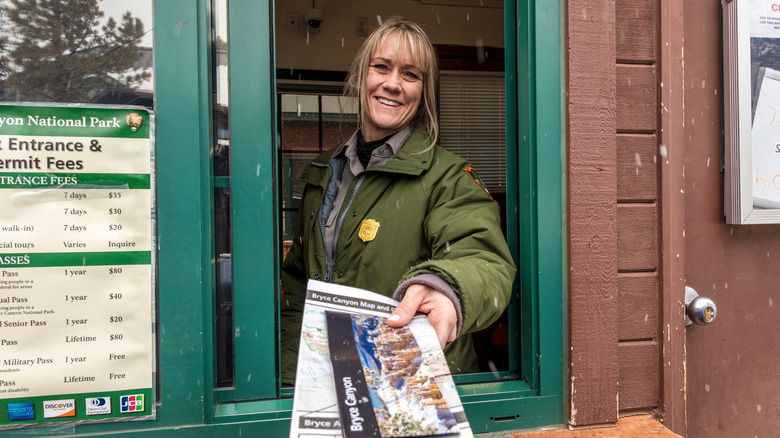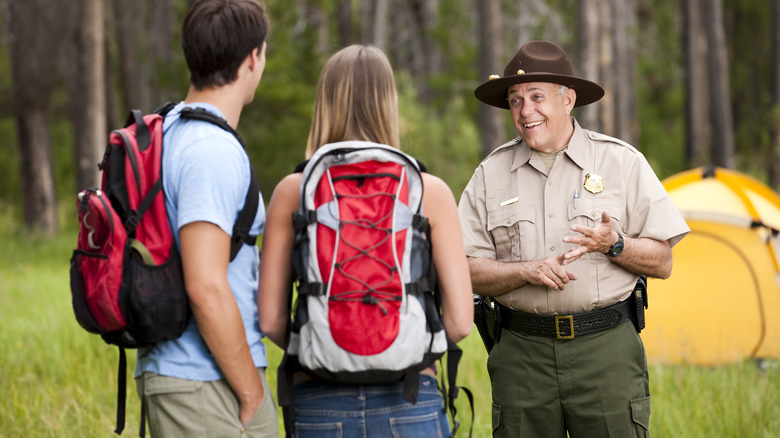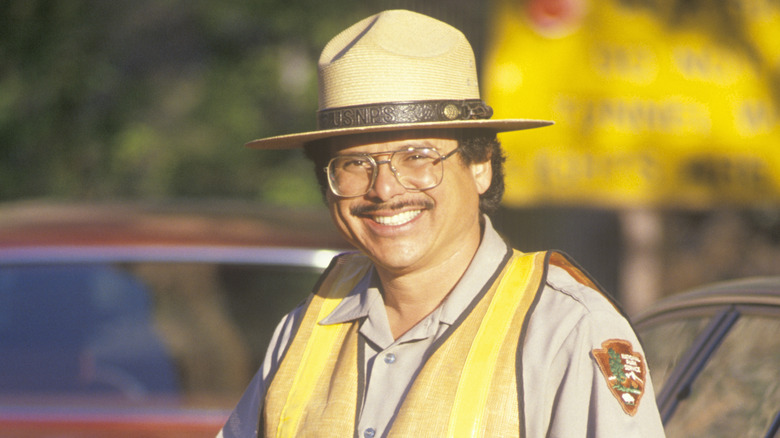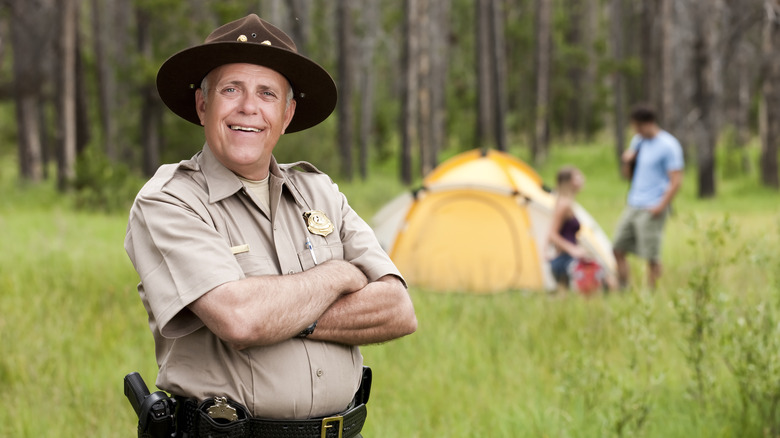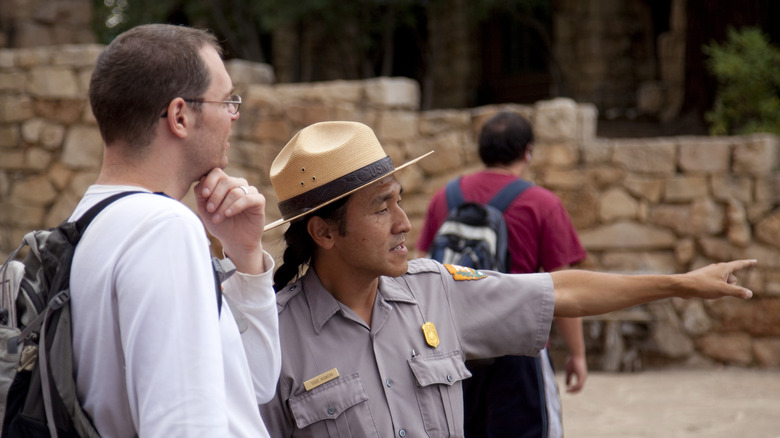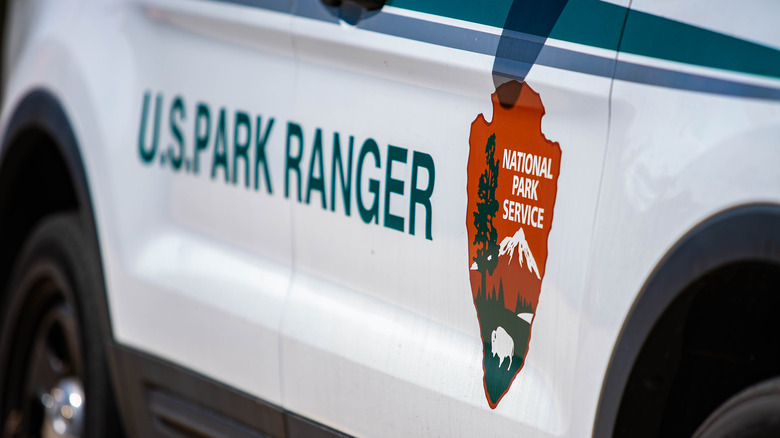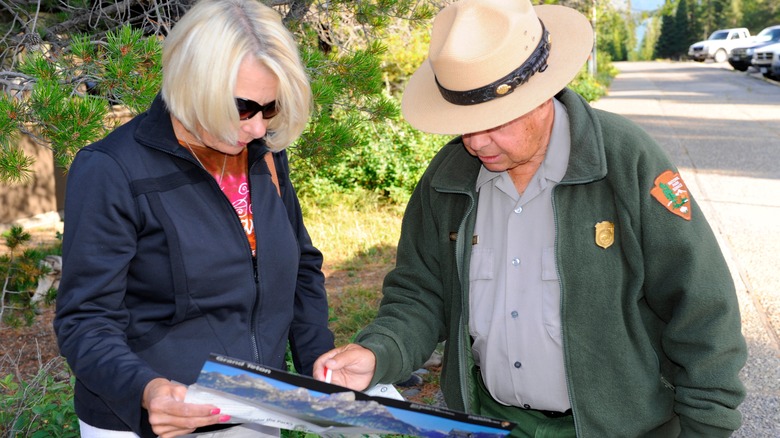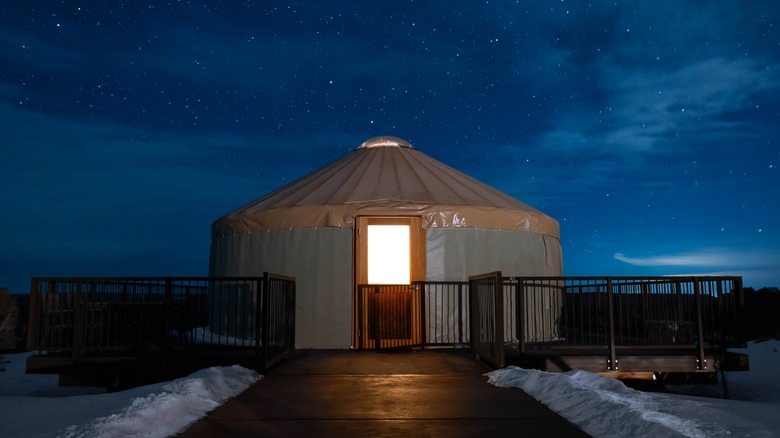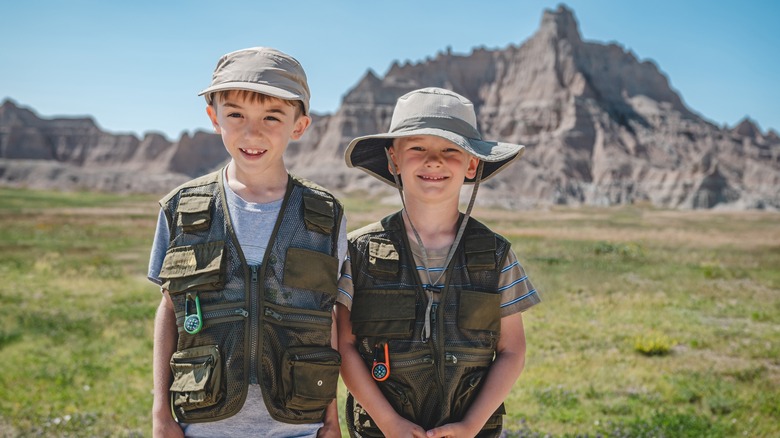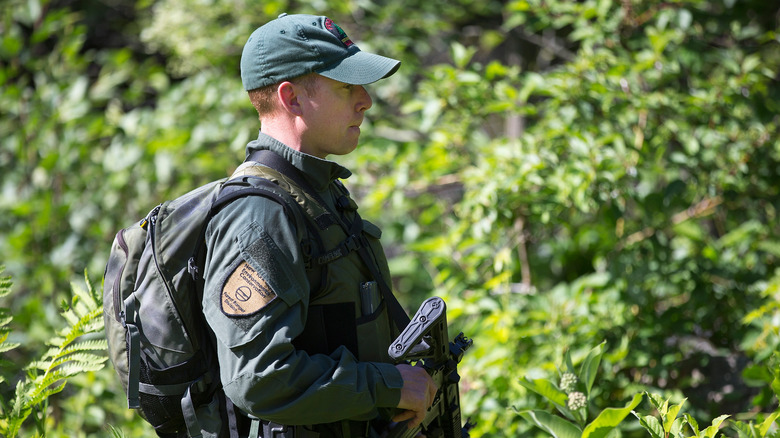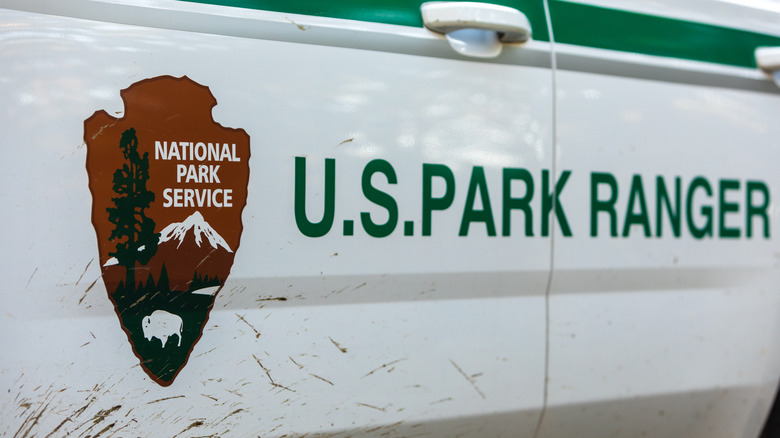12 Secrets Only Park Rangers Know
What would the National Parks be without their rangers? Arguably as iconic as the parks themselves, the rangers embody the mission of the National Park Service. They serve as fountains of information on park history, geography, and wildlife, as well as protectors of those visiting. It is a seemingly envious job, complete with cool uniforms, hats, badges, and access to the most beautiful corners of the country. And yet, there is something about park rangers that remains shrouded in mystery.
All National Parks have secrets, and so do the rangers. As part of a government agency, there are some things about running the parks that the public is just not privy to. These are not secrets that are necessarily kept on purpose; they just come with the territory. Think of it this way: just as there are parts of your job that a park ranger would have no idea about, so are there things about theirs that you are oblivious to.
We, however, have some information to share with you. We've collected 12 secrets that only park rangers know. From secret codes to knowing which trails to take and inside information about the less glamorous parts of the job, these informative secrets should give you a better appreciation for park rangers.
Park rangers are more than just tour guides
The National Parks were created to save the pristine landscapes of the United States for the public for centuries to come. As such, the rangers who staff them are, in essence, public servants. A result of this fact is that the public tends to rangers solely as a resource for tourists. While true to a certain extent, there is a whole lot more that goes into being a ranger than simply showing folks around the park.
There is a lot that rangers do behind the scenes that are more in service to the parks than the patrons. Rangers patrol the park, enforce regulations, maintain trails, fight wildfires, run outreach programs, conduct biological studies, and keep tabs on the wildlife. All of this can make the job pretty unpredictable and hands-on, which is something people tend not to think about when the friendly ranger at the visitor station hands them their map and collects the entry fee.
So, while rangers do help make guests' experiences at the park richer and fuller, there is so much more to their lives and jobs that the public isn't aware of.
Getting a ranger-led tour is a great way to save money
Rangers give excellent tours. Why wouldn't they? They know more about the parks than virtually anyone else. They know the history, the landscape, the wildlife, and all manner of other interesting, meaningful information that enriches the tours that they give. Getting a tour from a ranger is also a great way to save you some money.
If you're looking to save a few bucks, opt for a tour with a ranger over an independent guide. Why? Because ranger tours are free. You've already paid for admittance into the park; why would you bother to pay someone who doesn't know nearly as much about the area as the ranger does? Rangers can take you places no one else has access to, give you excellent information on park history, and also give you tips on the best trails to take if you want to avoid crowds.
Yes, park ranger work involves more than giving tours. But why miss out on the chance to visit some pretty cool places for no extra cost? Whether you're part of a larger tour or happen to be the only one for the day, it is always worth it to see the park from the rangers' perspective.
Park rangers use secret codes
Just as police officers, firefighters, and army captains have their specific codes for people and situations, so too do park rangers. Now, we are not privy to the meaning behind all of these codes. However, there is one term that you are likely to hear bandied about on the rangers' radios: "Code W."
You don't want to be a Code W. You see, the "W" in a Code W stands for "Wimp." This is the term rangers use to refer to someone who has called for help but doesn't actually need it. Think of the person who decided to scale the mountain in flip flops and is demanding to be carried down the mountainside because their feet are sore. Or the person who scraped their knee on a rock and is demanding a full med-evacuation. We'll say again: you don't want to be a Code W.
Though there are many other codes rangers use, Code W is one they probably use more often than they'd like. Since part of their job is to help people who actually get lost or are in life-threatening situations, dealing with one too many Code Ws is enough to get on any ranger's nerves.
Rangers care about the safety of park visitors
Did you know that rangers have a special way of checking in on you without you really realizing it? It's called Preventive Search and Rescue, and it was implemented by the National Park Service for the Grand Canyon in 1997. The idea was to bring down the number of search and rescue missions by asking a series of seemingly mundane questions that would give park rangers a better idea of where you are going.
So, when a park ranger approaches you and asks what trail you are going on, how much water you have, or how long you plan to be out, what they are actually doing is checking in on your safety. It is one of the rangers' primary jobs to keep the public in the park safe. By using Preventative Search and Rescue questions and by getting as much information about where you are going to be as they can, the rangers will have a far better idea of where to find you should the occasion arise where they would need to.
Another part of this is for the rangers to provide you with as much information about the trail as possible. Telling you where the rest stops are, where there are potential hazards, and where the trail might get a little confusing are all ways rangers can make sure you are having the safest time possible, all without you really knowing it.
Use common sense when out in the wild
This isn't really a secret. It's more of an opinion. Because they interact with so many members of the public, park rangers watch a lot of people make some pretty big mistakes that could have been fixed with the use of common sense. Take it from an actual park guide, Megan Rockwell of Joshua Tree National Park. With its location in the desert, she told us that the biggest common-sense mistakes she sees people make revolve around water and sunscreen.
"It is very important to stay hydrated in the desert as there is very little moisture in the atmosphere. Your body does not reabsorb the moisture you sweat out; it just dissipates. The lack of moisture results in UV rays directly impacting our environment. Visitors need to remember to wear sunscreen," she said.
What rangers and guides expect from you is to take a moment and use your brain. If you're at Yosemite, don't climb to the top of the falls. If you're at Yellowstone, leave the buffalo alone. These are basic things that rangers expect you to know, but they're always surprised when folks don't. So, give the rangers a break. Do your research and pack accordingly before you leave.
Park rangers have to deal with unexpected tragedies
One of the downsides of being a park ranger is having firsthand experience of the tragedies that can happen at the park. Death by suicide at the parks is more common than we'd all like to believe. As park rangers are the first line of defense, they often have to deal with crises during or after they have occurred. That is not something anyone can be prepared for, let alone feel like sharing with others.
It can be difficult for rangers to move on from a tragedy. Some have to transfer to different parks, while others have quit altogether. Knowing the exact location where someone slipped to their death or having to remember the ledge where they talked someone down from dying by suicide are not stories rangers would want to share with the public.
While there are definitely many perks to being a ranger, there is also a darker side to the job. Dealing with tragedies is one such aspect. It's a part of the rangers' job that the majority of the public doesn't consider.
If you or someone you know is struggling or in crisis, help is available. Call or text 988 or chat 988lifeline.org
If you're ever in doubt at a National Park, ask a ranger or guide
If you have a question, even one that is seemingly mundane, ask a ranger. Or, better yet, ask a guide! Park guides fall under the banner of the Ranger Service, though they do not share all of the duties and extra responsibilities that rangers have. Guides are mainly focused on educational interpretation of the site. They are literally there to guide you by helping you navigate the park and understand exactly what it is you are seeing.
Park Guides, like Guide Rockwell from Joshua Tree, are indispensable parts of the park system. They are a wealth of information and know just about as much as the rangers do. "Our visitor centers and ranger programs are a wealth of information," said Guide Rockwell. Working in the centers, she is uniquely positioned to have knowledge of almost every aspect of the park and can share that with the incoming public every day.
So, if you're looking for a trail or are wondering about the history or nature of the park, ask a guide or ranger. They are there to help you, even if you feel your question is too small to bother them with. They will not feel bothered.
A park's website contains a lot of valuable information
There are actually some questions that you can answer on your own without the need to talk to a guide or ranger. According to Guide Rockwell, the park website is the "best place for information on closures, delays, and visitor impacts." The NPS is constantly updating all park web pages with the latest information about the parks. As Guide Rockwell noted, the website is an excellent resource for trail closures, but it can also show what parking lots are closed, where there is construction, what areas are undergoing maintenance, and which sections have been flooded by the spring runoff on the rivers.
The websites are also the best way to get weather alerts that pertain to the park you are visiting. It could be raining in Death Valley, or there could be a lasting drought in Acadia, and you might not know unless you've checked out the website. Checking the website of the park you're visiting is going to be one of the best ways to get information on the park before you step foot in it. It's not something many besides the rangers and guides know about.
Some rangers actually live in park cabins
Have you ever been hiking in a National Park and come across a small cabin along the trail? Despite what you might think, that's not a hut for you to stay in when you get tired. That's actually living quarters for park rangers. Yes, some rangers do actually live inside of the park. This has been a tradition since the early days of the National Park Service. Rangers with more intense duties, like those who deal with poachers or vandals, will live full-time in cabins in the park in order to be close at hand when things go down.
These cabins are usually pretty deep within the parks. They allow rangers to access the more remote parts of the park and provide safe shelter to return to at the end of the day. They also provide a sense of connectedness to the park that rangers cannot experience by working behind the desk at the visitor station.
The cabins tend to be farther removed from some of the other ranger housing offered at the parks. Rent for the cabins comes out of the rangers' paychecks, and the cabins vary in quality from primitive, to having more creature comforts like wifi. It all depends on the park.
There is a Junior Ranger Program designed for kids
This is a fun fact that not enough people know about. If you've got kids, the park rangers can actually induct them into the National Park Service through the Junior Ranger Program. Designed for kids between the ages of 5 and 13, the program provides a great incentive for kids to learn more about the parks and get involved with their longevity. They receive park passports, which can be stamped at each park they visit. There are also several activities they can participate in, and fun ornaments for them to collect.
However, the secret is that only a park ranger can induct the junior rangers into the program. So, if your young ones want to become a part of this great little program, they need to seek out a ranger. Usually, there will be one at the visitor center who can help your kiddo along.
Once they are ready, the rangers will have your kids recite an oath and then award them with Junior Ranger badges. This isn't for every kid's liking, but knowing that it is available is a great way to boost education and engagement. The more the rangers can advocate for their beloved parks, the more people will be inclined to keep things going.
There are different types of park rangers
Within the National Park Service, there are multiple different types of ranger positions that cater to specific career paths. In this highly competitive field, it can often be difficult for candidates to even get in the door of the NPS. However, if they do, they will be able to find work in multiple different fields, including law enforcement, maintenance, and administration.
While many of the rangers you see at the parks will be those that work in and for the NPS, there are other rangers hanging around the parks that are part of different government agencies and, therefore, have different duties. You will come across rangers from the U.S. Forest Service, who are in charge of woodland maintenance, as well as state park and battlefield rangers. There are also rangers who work for the Bureau of Land Management and the National Wildlife Refuge System.
It can be easy to get confused by all the different types of rangers, but just know that regardless of what department or agency they work for, they are there to help you if you need it.
Some park ranger secrets cannot be told
Naturally, there are just some secrets that cannot be told. Remember, park rangers are government employees. As such, they have to maintain a certain level of confidentiality to remain in their positions. There are aspects of their jobs that they cannot share with the public for any reason.
Other secrets might be more personal. Whether it's a tragedy the ranger does not want to relive or a secret trail with a great view that they found and don't want to reveal to anyone else, there are some things that the rangers just don't want others to know. And that is okay. We need to respect the fact that rangers, like everyone else, have secrets that they'll take with them to their graves.
We're sure there are more secrets only park rangers know that we've missed on this list. But what would be the point of having secrets if all of them were shared?
